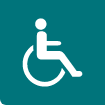Transition to Adult Services
What is Transition?
In health care, they use the word ‘transition’ which describes the process of planning, preparing and moving on from children’s services to adult services. Transition should be a gradual process. It gives you the time to talk about what health care you will need as an adult, choose which adult hospital or services are best for you and you will also be able to share any worries you have or questions you want to ask.
When Will This Happen?
Generally young people requiring ongoing care into adulthood are transitioned into adult services between the ages of 16 and 19, however planning for this may begin from the age of 14. Sometimes, young people move from a children’s hospital to an adolescent unit at 13 or 14 years old, instead of moving straight to an adult hospital.
During your transition from childrens services to adult services, your current medical team will support you in putting plans together to make this process as smooth as possible. This will hopefully allow you to feel fully involved and more confident in the process.
Where will my care move to?
Most areas of the UK have a local Chronic Pain service. This may be a community-based service or a larger hospital. Sometimes you can choose a hospital near where you live. Alternatively, you might need to go to a specialist hospital. Your consultant, clinical nurse specialist or family doctor (GP) will be able to recommend which adult hospitals or services are right for you.
What Will Change?
- One of the main differences between children’s and adult health services is the amount of independence you will be given. This means that you will need to learn about your condition, so that you can be more involved in your care.
- You will be asked to make decisions about your condition and treatment, you can still ask their advice before making your choice, but the decision should come from you. You will be given all the information you need to make the right choice.
- You will be the person answering the questions asked during the appointment.
- You will be responsible for making appointments, cancelling or rearranging appointments and attending appointments.
- Doctors may spend less time with you in appointments and these may be a bit shorter in length than what you have been used to. Doctors, nurses and other staff will spend more time talking to you than your parents. You will still be allowed to take your parents with you to clinic appointments, but you will be the one to talk about your health.
- If you are admitted to an adult hospital, your parents will not be able to stay overnight with you. Although the visiting times might be shorter, your family and friends will still be able to visit you and speak to you on the telephone.
- The people treating you will be a different team with different nurses, doctors and medical staff.
- You may be at a different hospital or department.
What Will Stay The Same?
Although the building, hospital or department may be different and the faces might be new, there may be lots of things about the adult service that are similar to the children’s service. Both children’s and adult health services are there to care for you and your health. You can still take your parents to your appointments with you, many adults take someone to appointments with them.
Tips
- Ask as many questions as you need to, its important you understand.
- Write a list of any thing you want to ask or know more about, this way you won't forget what you want to say.
- Make sure you understand what the medical staff are telling you.
- You can still seek advice from your family, they may be able to help you come to a decision.
- Write down appointments in a diary, or in your phone calender.
- You will become more confident the more appointments you attend in adult services.
- Try to keep all you medical paperwork in a folder, to ensure its all in one place and easy to find.
- Spend some time educating yourself about CRPS and the medications you take, this will help with your ongoing care and allow you to be more independent.

 £
£